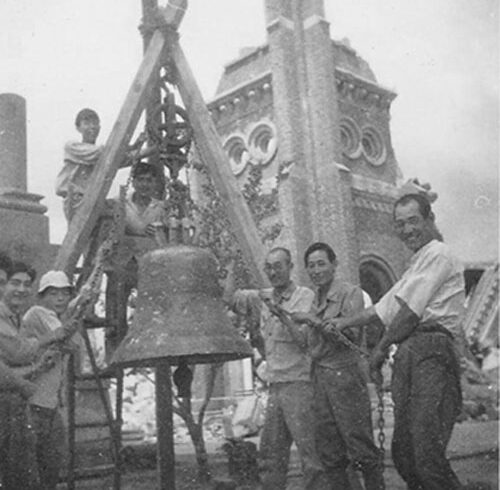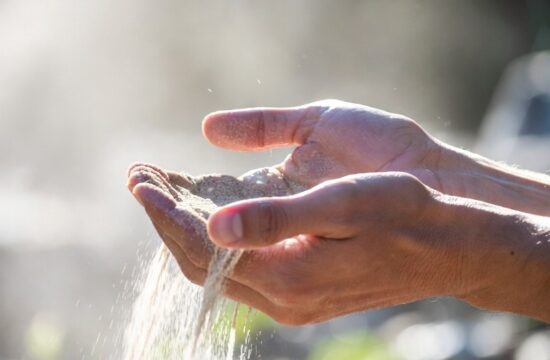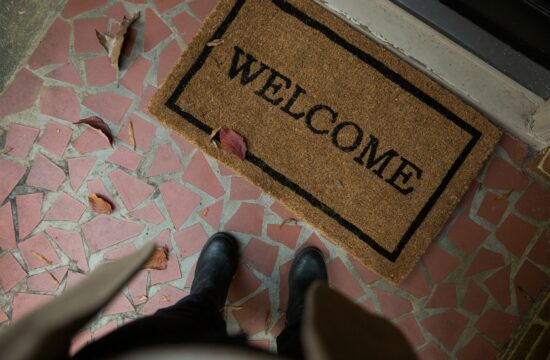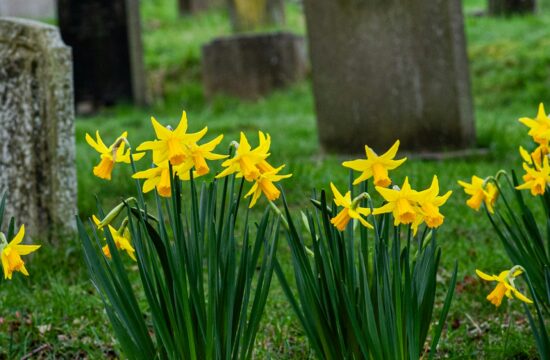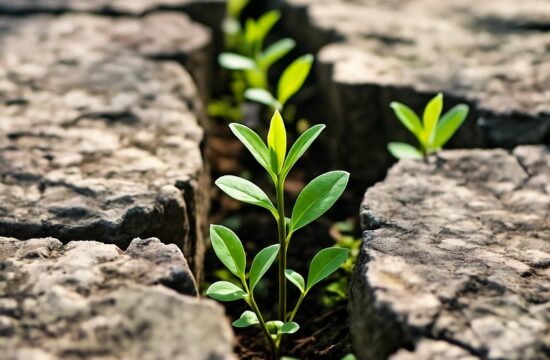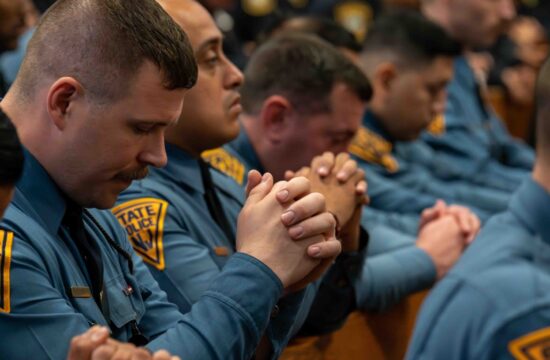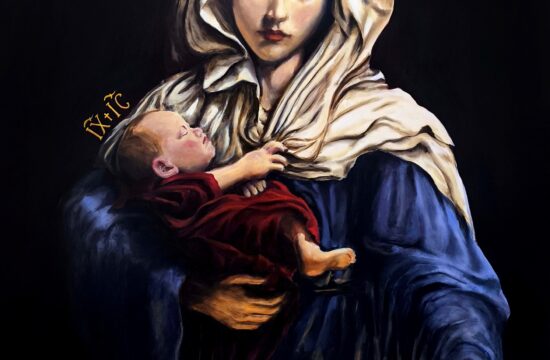Turn on the news any given day, and you can’t escape the headlines — war dragging on in Ukraine, heartbreak unfolding in Gaza and Israel, conflict simmering in so many corners of the world. Sometimes it feels like peace is slipping further away, and the cycle of violence just keeps repeating. Yet this week, history forced us to pause and look back as the world marked eighty years since the atomic bombs fell on Hiroshima and Nagasaki—August 6th and August 9th, dates that changed the world forever.
Thank you for taking the time to read this homily for the 19th Sunday in Ordinary Time (August 10, 2025). Your support means a great deal to me, and I’m deeply grateful for the many who share these messages with their friends, families and social media followers. If you’ve found meaning in these words, I’d be grateful if you’d share them with others who might benefit.
And for those who prefer listening, you can find the audio version on SoundCloud HERE or subscribe to the podcast on iTunes HERE. Your comments, messages, and the way you’ve embraced these homilies continue to inspire me. Sincerely in Christ -Father Jim
If you’d asked me about those bombings a year ago, I probably would’ve given you a pretty standard, American-leaning answer. But this past Lent, something shifted for me. Through the Catholic smartphone app “Hallow” and the guidance of a brother priest and fellow campus minister, Father Mike Schmitz, I came across the story of Dr. Takashi Nagai—a doctor, a Catholic convert, whose remarkable life is told in the book “The Song of Nagasaki.”
Takashi Nagai grew up steeped in Shintoism, the traditional Japanese faith. As he matured, his education and work as a pioneer in radiology led him to atheism. But his journey didn’t end there. Through the quiet, consistent witness of his beloved wife Midori and her devout Catholic family, Nagai’s heart was gradually transformed. His conversion to Catholicism was moving in itself, but it would prove even more pivotal on the fateful day of August 9, 1945.
That day, the second atomic bomb was dropped on Nagasaki, detonating just a few hundred meters from the Urakami Cathedral—the Cathedral of the Immaculate Conception of the Blessed Virgin Mary. Dr. Nagai, working in the radiology lab of his hospital, survived the blast that destroyed the city. His wife did not. She was found in their ruined home, in the kitchen clutching her rosary.
To hear about such devastation—tens of thousands killed in an instant, so many more injured or poisoned by radiation—is to brush up against horror almost beyond imagining. I can’t pretend to know what I would do in the face of such loss and ruin. But what made Nagai a heroic figure, not just for Catholics but for the Japanese people in the decades since, is that he refused to let despair have the last word. Instead, he became a living witness to hope and mercy—a man whose faith didn’t just survive, but burned even brighter in the darkness.
I find myself drawn to his story—especially now, when both the news and our own lives are filled with so much pain and uncertainty. Takashi Nagai’s witness brings today’s Scripture readings into sharp focus. Our first reading, from Wisdom, is a short excerpt from a much longer reflection on the first Passover: the night when the Israelites were saved because they clung to God’s promises in their darkest hour. Then, in Luke’s Gospel, Jesus reassures us: “Do not be afraid any longer, little flock, for your Father has been pleased to give you the kingdom.” But He doesn’t stop there. He tells us, “Gird your loins and light your lamps… be like servants waiting for their master’s return.” In plain language: be ready. Be faithful. Live as if God might show up at your door at any moment.
Let’s sit with that for a second—what does it really mean to be “ready”? Not just in first-century Judea, but right here, right now, in a world that lurches from crisis to crisis?
Takashi Nagai gives us a clue. After the bomb, no one would have blamed him for turning inward, for giving in to anger with God or losing faith entirely. Instead, he prayed. He served. He wrote letters of comfort to others, even as he mourned his wife. Amid the ashes, he built a tiny hut and called it “Nyokodo”—Japanese for “Love your neighbor as yourself.” Every day, he lived as if it might be his last—but also as if every moment was a new chance to love, to forgive, to serve.
That’s what our reading from Wisdom is really about. The Israelites didn’t just hope things would work out—they trusted God enough to pack their bags before Passover, ready to leave Egypt at a moment’s notice. Their faith wasn’t passive. It was active. They were ready to step into the unknown, certain that God would keep his promises.
That’s why Jesus tells his friends, “Do not be afraid.” He isn’t saying there’s nothing scary out there, or that we should just “kick back and relax—Jesus has got our back.” He’s making an important distinction: Jesus doesn’t want fear to paralyze us into inaction, so he gives us concrete action steps: Sell your possessions. Give to the poor. Put your heart where it belongs. Don’t let your life be weighed down by things that don’t last. Invest in what matters—mercy, love, generosity, faithfulness.
But Jesus knows us. He knows how easy it is to drift, to say “I’ll pray more tomorrow,” or “I’ll forgive that person next week,” or “I’ll do something good when life isn’t so crazy.” He warns us: “Gird your loins and light your lamps.” Don’t put it off. Be ready now—not out of fear, but out of hope.
Let’s be honest—most of us aren’t always ready. We get distracted. We make excuses. We live as if we have all the time in the world. But Jesus says: “You do not know the hour.” The point isn’t to scare us. It’s to wake us up. Every day is a new chance to live for God and for others—to keep our lamps burning, not in dread, but in hope.
Dr. Nagai lived with that kind of hope. Even as he mourned his own losses and suffered from leukemia caused by the bomb, he welcomed visitors, listened to their pain, and constantly pointed them to Christ. He once wrote, “We are not called to understand God’s will, but to accept it and trust in His love.” He didn’t wait for the perfect moment to start loving; he loved right there, in the ruins, with whatever strength he had left.
So how do we live like that? How do we keep our lamps burning in a world that sometimes feels as dark as Nagasaki after the bomb? Three things come to mind:
First: Remember God’s promises. The Israelites had to dig deep and remember how God had shown up for them before, trusting Him through the darkness of Passover. Dr. Nagai trusted that Christ’s love was stronger than death. When we’re anxious or afraid, we can return again and again to the promises of our baptism: that we are beloved, that Christ is with us, that nothing—not even death—can separate us from his love.
Second: Don’t put off your response. If you need to forgive someone, don’t wait. If someone needs your help, don’t tell yourself you’ll get to it later. If there’s a sin weighing you down, go to confession. If there’s a habit you need to change, start today. The lamp needs to be burning now, not someday.
Third: Make your treasure the things that last. It’s easy to chase after security, to stockpile money or stuff, to measure ourselves by what we own or achieve. But Jesus says, “Where your treasure is, there your heart will be also.” The only treasures that last are love, mercy, compassion, faithfulness. Make those your investments, and you’ll be ready—whenever the Lord comes.
Dr. Nagai, even from his sickbed, wrote words that still have the power to shake us awake: “Let us give thanks for everything. Let us trust in God’s mercy. Let us love one another, for in this way we make present the kingdom that is to come.” He wasn’t speaking as someone who had it easy, or who had all the answers. He spoke as a man who had lost almost everything, yet still chose gratitude, trust, and love. In the ruins, he found a way to build hope. In the face of death, he preached Christ crucified and risen from the dead. In a world that had burned, he chose to plant seeds for the kingdom of God.
That’s what it means to be ready: to trust God’s promises, to act in love right now, to hold fast to what truly matters. We don’t know the hour. We don’t know what tomorrow will bring. But we do know this: the Master is coming—and He loves us with a love that shakes the earth.
So keep your lamps burning. Refuse to let fear win. Let your life blaze with faith, generosity, and hope, even in the darkest night. May we, like Dr. Nagai, become living songs of hope in a world aching for light. And when the Lord knocks, may He find us not just waiting—but wide awake, hearts open, ready to run to Him.

